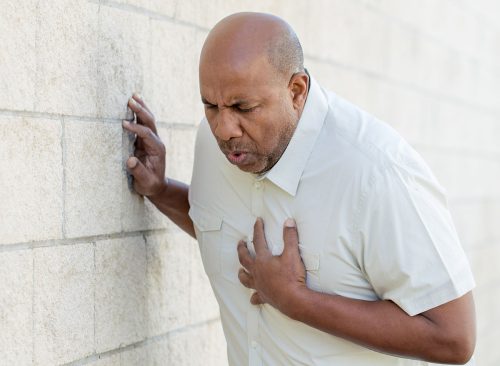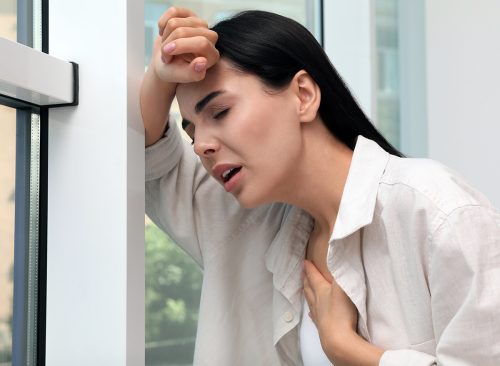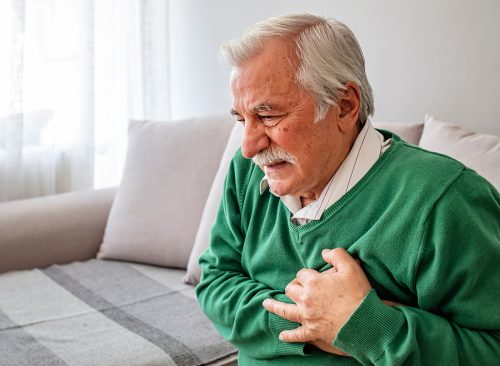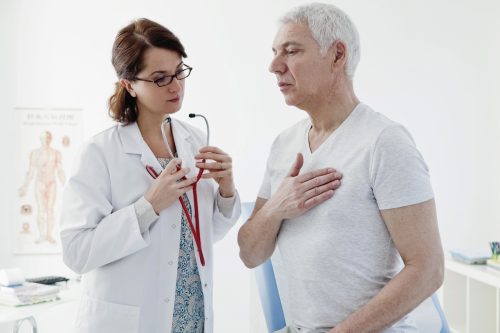
Chest pain is one of the most well-known and worrisome symptoms of a heart attack. But it can also be brushed off as something less consequential, which can be a fatal mistake. How can you tell if your chest pain is serious? “Distinguishing serious chest pain from benign causes like heartburn or muscle strain involves considering accompanying symptoms,” says Dr. Steven Fiore, a board-certified orthopedic surgeon in Virginia. These are key signs you should never ignore.

One symptom that indicates your chest pain could be serious and coming from your heart is pressure-like pain that worsens with exertion, like climbing stairs, says Dr. Hannah Goldberg, a board-certified primary care physician with Mercy Personal Physicians in Reisterstown, Maryland.

Chest pain that occurs with shortness of breath is also potentially serious, says Goldberg.

If you have chest pain and you’re sweating or vomiting, you should call 911 or proceed to the emergency room, says Goldberg.

“Heart-related pain often radiates to the arms, jaw, or neck,” says Fiore.

“Persistent, intense pressure or squeezing sensations are also red flags,” says Fiore. “If chest pain is sudden, severe, and associated with difficulty breathing, it’s crucial not to wait.”
“Chest pain related to a heart attack is often described as pressure, squeezing, fullness, or pain in the center or left side of the chest that persists for more than a few minutes or comes and goes,” says Dr. Paul Daidone, an Arkansas-based board-certified physician in internal medicine and addictionology.

Lightheadedness or dizziness felt with chest pain is also a concerning sign, says Daidone.

Unusual fatigue associated with chest pain is also potentially serious, says Daidone.

“Erring on the side of caution is crucial, and calling 911 or heading to the emergency room is advised when any doubt exists about the origin or severity of the chest pain,” says Fiore. “Waiting it out in such cases can lead to delayed treatment and potentially worsen the outcome.”
RELATED: Things You Should Never Do at the Doctor’s Office, Say Doctors

“Anyone with any significant chest pain needs to be evaluated, period. Many times, the cause will be found to be trivial, but if it is not and it is ignored, the consequences can be disastrous,” says Christopher Hanifin, EdD, PA-C, a longtime EMS provider and chair of the Department of Physician Assistant at Seton Hall University.














